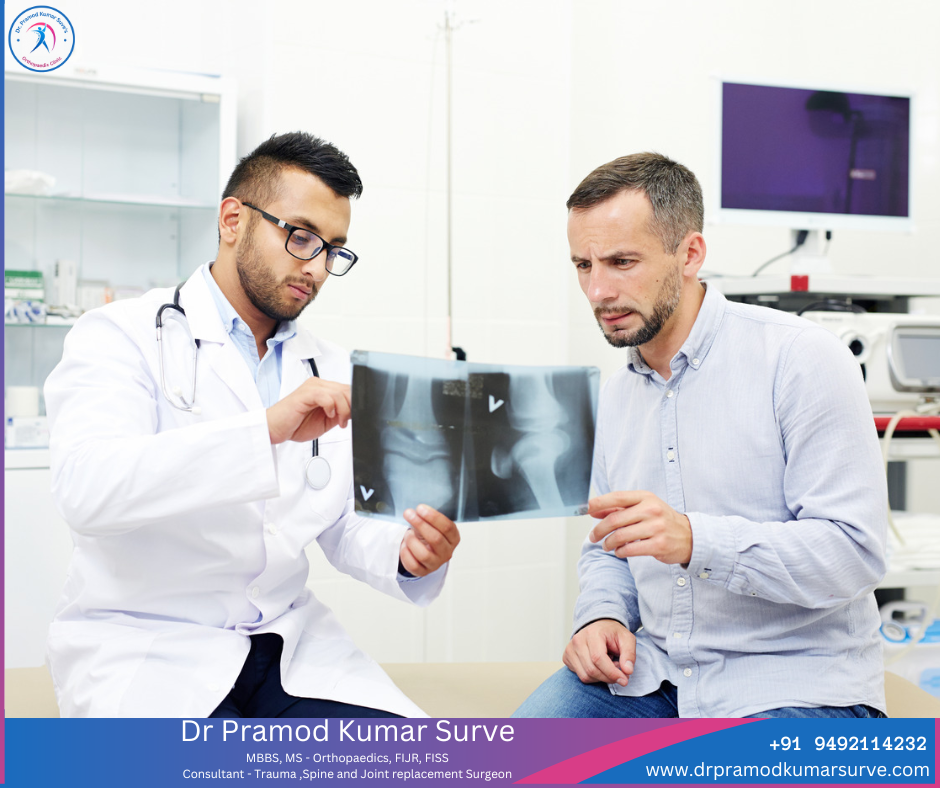Bone dislocations can be painful and alarming injuries that require immediate attention. Understanding the nature of these dislocations, their causes, symptoms, and treatment options is essential. If you or someone you know is experiencing a bone dislocation, seeking help from an experienced orthopaedic doctor in Hadapsar is crucial.
What are Bone Dislocations?
A bone dislocation occurs when the ends of the bones in a joint become separated. This can happen due to trauma, such as a fall, sports injury, or accident. Commonly dislocated joints include the shoulder, elbow, finger, knee, and hip. Dislocations can lead to severe pain, swelling, and the inability to move the affected joint.
Causes of Bone Dislocations
Understanding the causes of bone dislocations can help prevent them. Here are some common causes:
- Trauma: A fall or direct blow to a joint can cause dislocation. Athletes are particularly at risk during contact sports.
- Accidents: Car accidents or high-impact activities can result in dislocations.
- Inherent Joint Laxity: Some individuals have looser ligaments, making them more susceptible to dislocations.
- Repetitive Stress: Engaging in repetitive motions without proper support or conditioning can weaken joints, increasing the risk of dislocation.
Symptoms of Bone Dislocations
Recognizing the symptoms of a bone dislocation is vital for timely treatment. Common symptoms include:
- Intense Pain: Sudden, severe pain in the affected joint.
- Swelling and Bruising: Noticeable swelling and bruising around the joint.
- Deformity: The joint may appear out of place or misaligned.
- Inability to Move: Difficulty or inability to move the affected joint.
If you suspect a dislocation, it is essential to consult an orthopaedic doctor in Pune or Hadapsar immediately for a proper diagnosis and treatment.
Diagnosis of Bone Dislocations
An orthopaedic doctor will conduct a thorough examination, including:
- Physical Examination: Assessing the affected joint for deformity, swelling, and pain.
- Imaging Tests: X-rays or MRIs may be ordered to confirm the dislocation and rule out associated fractures.
Treatment Options for Bone Dislocations
Treatment for bone dislocations typically involves the following steps:
- Reduction: The first step is to realign the dislocated joint. This procedure, known as reduction, is often performed under sedation or anaesthesia by an orthopaedic doctor. After realignment, the joint is stabilized to prevent re-dislocation.
- Immobilization: The affected joint may be immobilized using a splint, sling, or brace for a specific period, allowing the surrounding ligaments and tissues to heal.
- Rehabilitation: Physical therapy is crucial for regaining strength, flexibility, and range of motion in the joint. An orthopaedic doctor in Hadapsar can recommend a tailored rehabilitation program to help you recover fully.
- Surgery: In severe cases, surgical intervention may be necessary to repair damaged ligaments or tendons. This option is usually considered when conservative treatments fail or when there are recurrent dislocations.
Preventing Bone Dislocations
Preventing bone dislocations is possible by following these guidelines:
- Strengthening Exercises: Engage in exercises that strengthen the muscles surrounding your joints.
- Proper Techniques: Use correct techniques during sports and physical activities to minimize the risk of injury.
- Protective Gear: Wear appropriate protective gear during sports and high-risk activities.
- Awareness: Stay aware of your surroundings to avoid falls or collisions.
When to See an Orthopedic Doctor in Hadapsar
If you suspect a bone dislocation, it is crucial to seek medical help promptly. An orthopaedic doctor in Baner will assess your injury and provide the appropriate care. Don’t ignore persistent pain or instability in a joint, as these could be signs of an undiagnosed dislocation or other underlying conditions.
Conclusion
Bone dislocations can significantly impact your quality of life, but with prompt diagnosis and appropriate treatment from an orthopaedic doctor in Pune, you can recover fully. Understanding the causes, symptoms, and treatment options for bone dislocations empowers you to take proactive steps in maintaining your joint health. If you experience any signs of dislocation, don’t hesitate to reach out to a qualified orthopaedic specialist at Orthopedic clinic for expert care.
